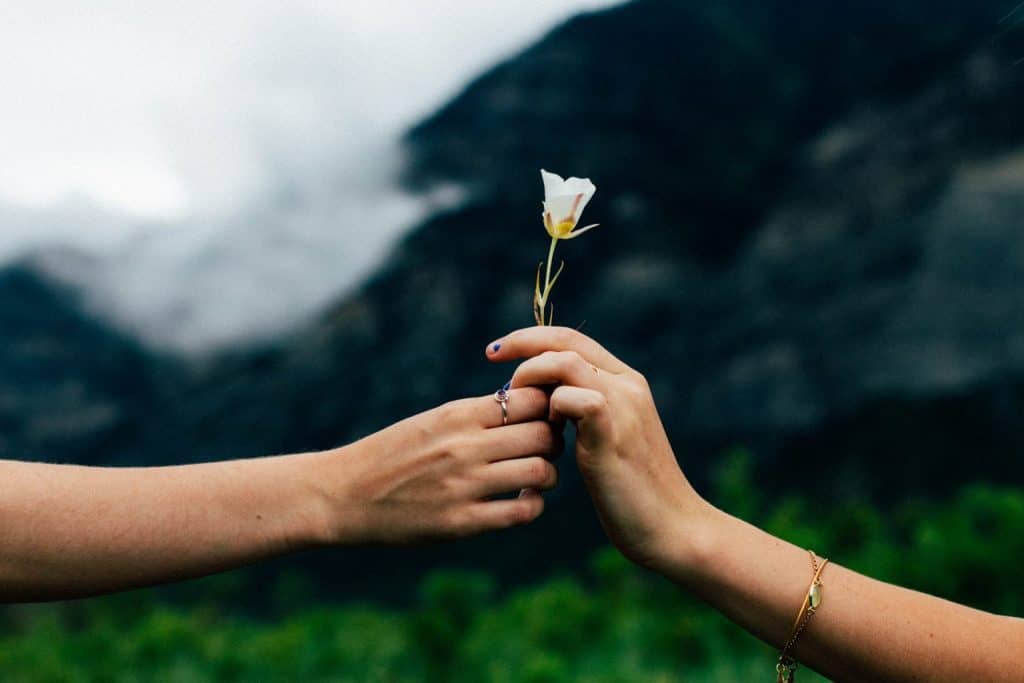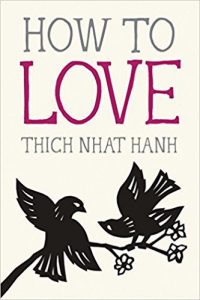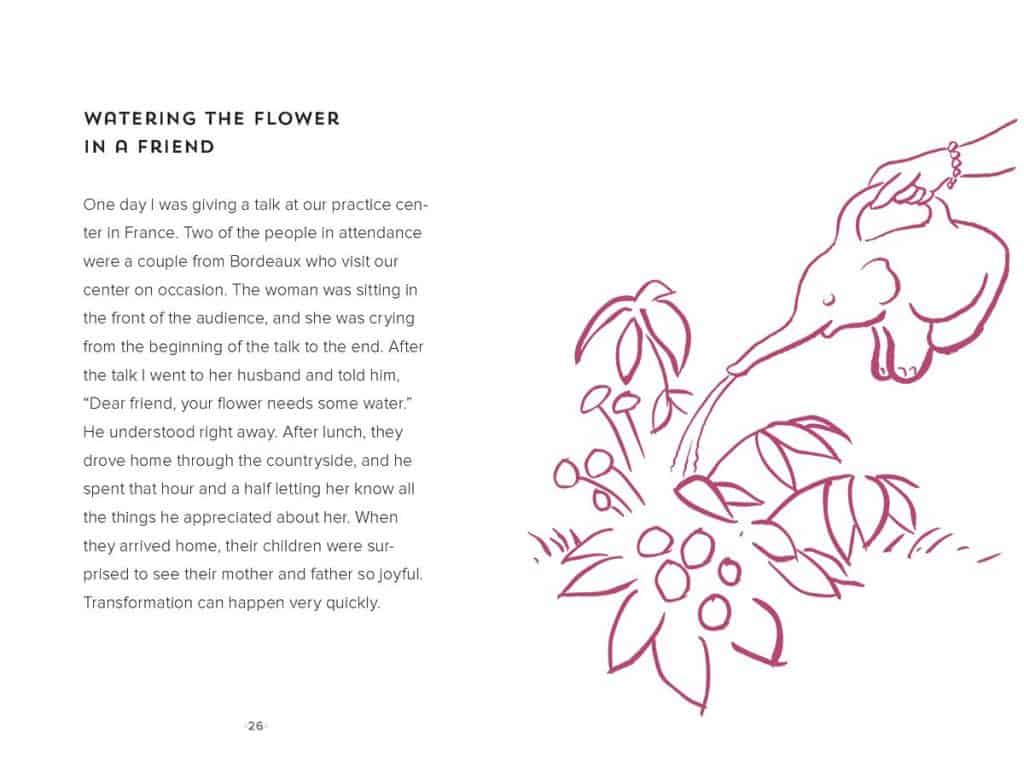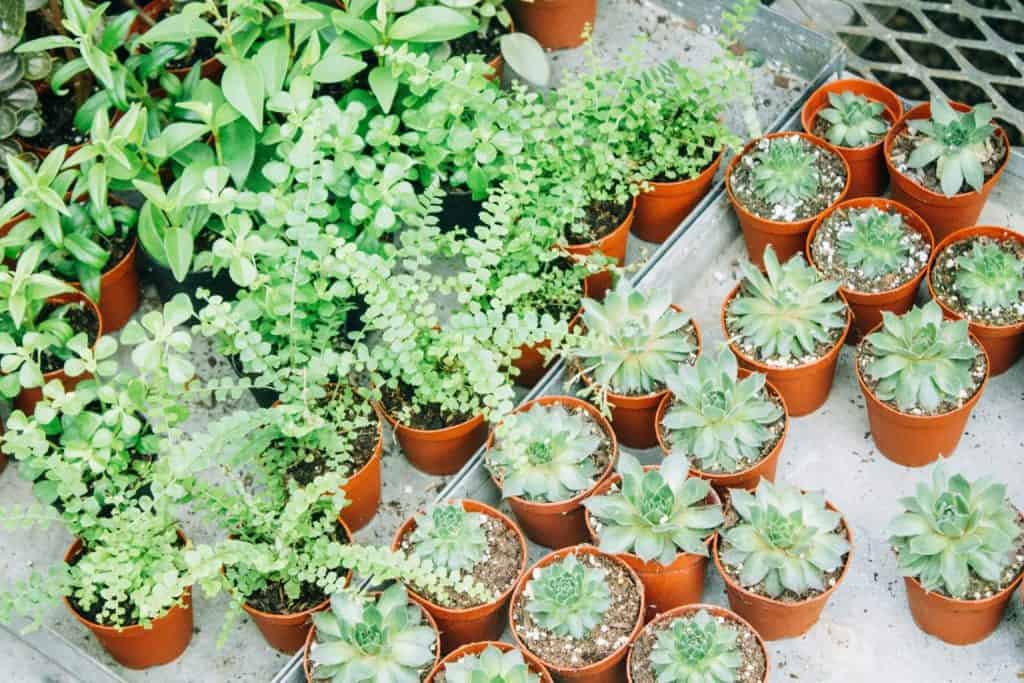Thich Nhat Hanh’s guide to loving others (How to Love Part 2)
I only share books I know and love. If you buy through my links, I may earn a commission (learn more).

 In my first post about How to Love by Thich Nhat Hanh, I shared 7 pieces of wisdom from the book on loving ourselves. I started there because, as Thich Nhat Hanh tells us so beautifully, our ability to nourish others with our love starts with how we treat ourselves.
In my first post about How to Love by Thich Nhat Hanh, I shared 7 pieces of wisdom from the book on loving ourselves. I started there because, as Thich Nhat Hanh tells us so beautifully, our ability to nourish others with our love starts with how we treat ourselves.
Once we are in a good relationship with our own minds and bodies, we can improve our relationships with others and be the best partner we can be. Here’s how, according to Thich Nhat Hanh.
1. Understanding is the best gift we can give
“Understanding someone’s suffering is the best gift you can give another person. Understanding is love’s other name. If you don’t understand, you can’t love.”
“Someone who can understand our suffering is our best friend. We listen to each other. We are there for each other. Otherwise, the coming together of two bodies becomes routine and monotonous after a time.”
2. Know when your flowers need some water
This is my favourite quote from How to Love on first reading. It rings so true when I’m having a difficult day and someone cheers me up, or when I see someone close to me looking out-of-sorts:
“After the talk I went to her husband and told him, “Dear friend, your flower needs some water.” He understood right away. After lunch, they drove home through the countryside, and he spent that hour and a half letting her know all the things he appreciated about her. When they arrived home, their children were surprised to see their mother and father so joyful.”

3. Treat your partner like a guest
“There’s a tradition in Asia of treating your partner with the respect you would accord a guest. This is true even if you have been with your loved one for a long time. The other person always deserves your full respect. Reverence is the nature of our love.”
4. What love is
“True love includes a sense of responsibility and accepting the other person as she is, with all her strengths and weaknesses. If you only like the best things in a person, that is not love. You have to accept her weaknesses and bring your patience, understanding, and energy to help her transform.”
“Love is a living, breathing thing. There is no need to force it to grow in a particular direction. If we start by being easy and gentle with ourselves, we will find it is just there inside of us, solid and healing.”
“True love is made of four elements: loving kindness, compassion, joy, and equanimity. In Sanskrit, these are, maitri, karuna, mudita, and upeksha. If your love contains these elements, it will be healing and transforming, and it will have the element of holiness in it. True love has the power to heal and transform any situation and bring deep meaning to our lives.”
5. What love isn’t
Love without trust is not yet love.
“Sexual desire is not love. Sexual activity without love is called empty sex. If you satisfy your body but don’t satisfy your heart and your mind, are you satisfied? Do you feel whole and connected? When your body, heart, and mind are satisfied, sexual intimacy connects you more deeply with yourself and your partner.”
6. We need to do the work of reconciliation
“The most important thing for you to do is to look deeply into yourself, to see if there is something that is still an obstacle for you. Is there anyone with whom you haven’t reconciled? Is there anything within you that you haven’t reconciled with?”
“Even if the person with whom you need to reconcile is very far away, you can still do the work of reconciliation now. What is important is to reconcile within your own heart and mind. If reconciliation is done within, that is enough. Because the effect of that reconciliation will be felt everywhere later on.”
7. We can’t wait until problems come up to strengthen our relationships
“If we wait until there is trouble with our partner to try and solve it, we won’t have built strong enough roots to withstand the assault.”

8. We must feed our love every day
“If you don’t know how to nourish and feed your love, it will die. If we know how to feed our love every day it will stay for a long time.”
“There are three kinds of intimacy: physical, emotional, and spiritual. These three should go together.”
9. We’ll never know everything about another person
10. It all goes back to ourselves
“It’s important that loving another person doesn’t take priority over listening to yourself and knowing what you need.”
Read more about loving ourselves – the good and the bad – in my first post, 7 gentle pieces of wisdom from Thich Nhat Hanh on loving ourselves (How to Love Part 1).
How to Love is a book for: self-care, loving kindness, improving our relationships, mindfulness, opening our hearts to others, being at home in our bodies.

